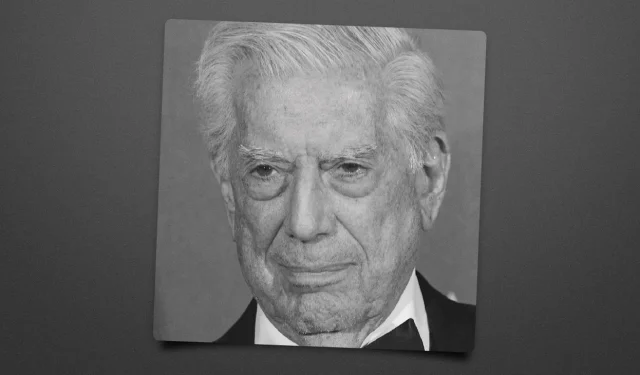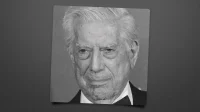Tribute to Mario Vargas Llosa: A Luminary in Literature Passes Away
Renowned Peruvian author Mario Vargas Llosa, whose contributions to Latin American literature span several decades, has passed away at the age of 89. His son confirmed the news on Sunday, highlighting the peaceful nature of his father’s final moments, surrounded by family.
“It is with deep sorrow that we announce that our father, Mario Vargas Llosa, passed away peacefully in Lima today, surrounded by his family,” stated a letter from his children, Álvaro, Gonzalo, and Morgana, shared by Álvaro on X.
According to the letter, Vargas Llosa’s remains will be cremated, and there will not be a public ceremony. The family expressed their hope that those who mourn his loss would find solace in his rich, adventurous life and the enduring legacy of his literary achievements.
Literary Legacy and Career Highlights
Vargas Llosa was the creative force behind esteemed works such as The Time of the Hero (La Ciudad y los Perros) and Feast of the Goat. He was a prolific novelist and essayist whose body of work earned him numerous accolades, culminating in the Nobel Prize for Literature in 2010 after years as a strong contender.
The author made his literary debut in 1959 with a collection of short stories titled The Cubs and Other Stories (Los Jefes), but he gained widespread recognition in 1963 with his first novel, The Time of the Hero. This groundbreaking work, reflecting his experiences at a military academy in Peru, provoked controversy, drawing ire from military leaders and resulting in the burning of copies.
As he progressed through his career, subsequent novels like Conversation in the Cathedral (Conversación en la Catedral) solidified his reputation, marking him as a pivotal figure in the “Boom”of Latin American literature alongside contemporaries such as Gabriel García Márquez and Carlos Fuentes.
Early Life and Influences
Born Jorge Mario Pedro Vargas Llosa on March 28, 1936, in Arequipa, Peru, he faced challenges from an early age, including parental separation and a tumultuous childhood. His father abandoned the family before his birth, prompting his mother to relocate to Bolivia to avoid scandal. A decade later, Vargas Llosa discovered his father was still alive, leading to a reconciliation that ultimately saw the family move to Lima.
His early experiences shaped his literary voice, as he described himself as “pampered” yet emotionally conflicted. He attributed significant influence to his strict father, who disapproved of his artistic pursuits. Vargas Llosa’s tumultuous time at the Leoncio Prado Military Academy would later inspire his celebrated novel,The Time of the Hero, which earned him the Spanish Critics Award.
Political Engagement and Ideological Evolution
Throughout his life, Vargas Llosa evolved from a leftist to a staunch advocate for personal freedoms and economic liberalism. Although he initially supported the Cuban Revolution, his later disillusionment led to vocal criticisms of totalitarian regimes in Latin America. He famously clashed with García Márquez in a public altercation in 1976, although the specifics of their dispute remain elusive.
Vargas Llosa’s political activism reached new heights when he ran for the presidency of Peru in 1990, albeit unsuccessfully. His loss to Alberto Fujimori, who would later become a controversial figure, highlighted Vargas Llosa’s complex relationship with politics and literature, as he often remarked that literature transcends the fleeting nature of political power.
Personal Life and Relationships
Vargas Llosa’s personal life was as vibrant as his literary works. He experienced a nine-year marriage with Julia Urquidi, who inspired the comic novel Aunt Julia and the Scriptwriter. In 1965, he married his cousin, Patricia Llosa, with whom he had three children. The couple divorced after five decades, after which Vargas Llosa formed a high-profile relationship with Spanish socialite Isabel Preysler, though they parted ways in 2022.
Final Reflections
The legacy of Mario Vargas Llosa will endure through his extensive body of work, which not only explored the complexities of Peruvian identity but also challenged political ideologies. As a member of the Royal Spanish Academy and a visiting professor at various esteemed institutions, his influence on literature and thought will continue to resonate.
Vargas Llosa is survived by his children and a vast array of literary admirers worldwide, who will remember him not only for his novels but also for his passionate engagement in the cultural and political discussions of his time.


